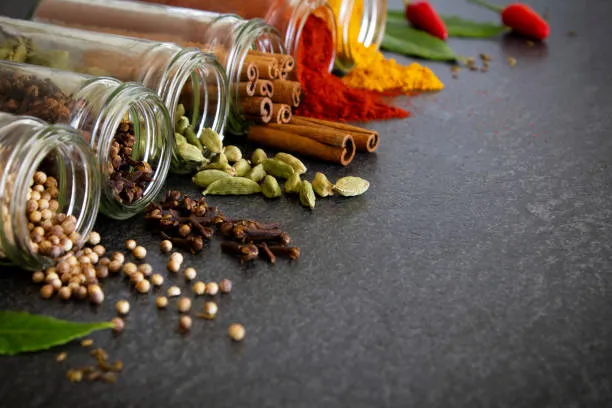Top Ayurvedic Herbs for Boosting Immunity

In today’s fast-paced world, maintaining a strong immune system is essential for good health. Ayurveda, the ancient Indian system of medicine, offers a wealth of knowledge on natural ways to enhance immunity using powerful herbs. These herbs have been trusted for centuries to support the body’s defenses, improve vitality, and promote overall well-being. Here are some of the top Ayurvedic herbs that can help boost your immunity naturally:
1. Ashwagandha (Withania somnifera)
The Rejuvenating Herb
Ashwagandha, often referred to as the “king of Ayurvedic herbs,” is a powerful adaptogen known for its ability to reduce stress and support the immune system. By balancing cortisol levels (the stress hormone), Ashwagandha enhances the body’s resilience against illness. It strengthens the immune system by increasing white blood cell count and improving the body’s ability to fight infections.
How to Use:
Ashwagandha is available in powdered, capsule, or tablet form. It can be taken daily with warm milk or water, especially before bedtime, to promote relaxation and immunity.

2. Tulsi (Ocimum sanctum)
The Holy Basil
Tulsi, also known as Holy Basil, is revered in Ayurveda for its immunity-boosting properties. It’s rich in antioxidants and possesses antibacterial, antiviral, and antifungal properties that protect the body from infections. Tulsi is also known to relieve respiratory conditions like asthma, bronchitis, and cold, making it an essential herb for respiratory health.
How to Use:
Tulsi leaves can be chewed fresh or made into a tea. Boil a few Tulsi leaves in water and add honey or lemon for a soothing, immunity-boosting drink. Tulsi supplements are also available for daily consumption.
3. Amla (Emblica officinalis)
The Vitamin C Powerhouse
Amla, or Indian gooseberry, is one of the richest sources of natural Vitamin C, making it a potent antioxidant that helps in boosting immunity. It aids in detoxifying the body, promotes the regeneration of cells, and strengthens the body’s defenses against free radicals and infections. Amla also supports digestive health, which is crucial for a well-functioning immune system.
How to Use:
Amla can be consumed fresh, as a juice, or in powdered form. Adding a spoonful of Amla powder to water or smoothies is a great way to incorporate it into your daily routine. You can also consume Chyawanprash, a popular Ayurvedic jam that contains Amla as a key ingredient.
4. Guduchi (Tinospora cordifolia)
The Immortal Herb
Guduchi, also known as Giloy, is celebrated in Ayurveda for its ability to boost the immune system by stimulating white blood cell production and fighting off infections. This herb is especially effective against chronic fevers and respiratory issues. It is known for its anti-inflammatory, antipyretic (fever-reducing), and antioxidant properties, which make it a powerful herb for overall immune health.
How to Use:
Guduchi can be consumed in the form of juice, powder, or capsules. Giloy juice is popular for boosting immunity and can be taken daily, especially during seasonal changes or when the body needs extra defense against infections.
5. Turmeric (Curcuma longa)
The Golden Spice
Turmeric is widely known for its potent anti-inflammatory and antioxidant properties, thanks to its active ingredient, curcumin. In Ayurveda, turmeric is considered a powerful herb for boosting immunity, supporting liver function, and fighting infections. It also helps detoxify the body and is effective in improving respiratory function and relieving symptoms of coughs and colds.
How to Use:
Turmeric can be added to food, consumed as a tea, or taken as a supplement. A popular immunity-boosting drink is Golden Milk—made by adding turmeric powder to warm milk (plant-based or dairy) along with a pinch of black pepper and honey for added benefits.
6. Mulethi (Glycyrrhiza glabra)
The Soothing Herb
Mulethi, or licorice root, is a common Ayurvedic herb used to enhance respiratory health and boost immunity. It soothes the throat, reduces inflammation in the respiratory tract, and is known for its antiviral and antimicrobial properties. This herb also supports digestion and helps balance the body’s stress response, which in turn supports immune health.
How to Use:
Mulethi can be consumed as a tea or in powdered form. Boil mulethi root or powder in water, strain it, and drink the tea to support respiratory and immune function, especially during seasonal changes.
7. Neem (Azadirachta indica)
The Purifying Herb
Neem is a powerful detoxifying herb in Ayurveda, renowned for its ability to purify the blood and remove toxins from the body. Its antibacterial, antiviral, and antifungal properties make it an excellent choice for boosting immunity and protecting the body from infections. Neem is also known for its benefits for skin health and its ability to promote a clear, glowing complexion.
How to Use:
Neem can be consumed in the form of powder, capsules, or as a juice. You can also apply neem oil or use neem-based skincare products to maintain healthy, immune-boosting skin.
Conclusion
Incorporating these Ayurvedic herbs into your daily routine can significantly enhance your body’s ability to fight off infections and maintain good health. Whether you choose to consume them as teas, powders, or supplements, these herbs work synergistically with the body to strengthen the immune system naturally and safely. Remember, Ayurveda is all about balance—pair these herbs with a healthy diet, regular exercise, and proper rest for optimal results.

